1
Steph W. from SEOPressor


👋 Hey there! Would you like to try out this New AI-Powered App that'll...
...help you check your website and tell you exactly how to rank higher?


82
score %
SEO Score

Found us from search engine?
We rank high, you can too.
SEOPressor helps you to optimize your on-page SEO for higher & improved search ranking.
By allysa on March 22, 2017
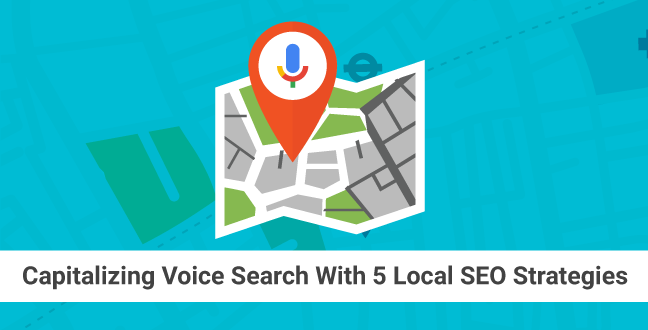
We’re living in a time of exciting developments in artificial intelligence. Machine learning algorithms are becoming more and more advanced, and can now interpret our intentions which a much greater understanding of context. Businesses are starting to practice voice search SEO too.
This makes a smart, conversational user interface, like those seen in science fiction, come ever closer to being a reality. Already, automated speech recognition has made huge leaps. The accuracy of these programs was 70% in 2010. It was 90% last year. It will continue to improve.
Speech recognition provides the foundation for natural language understanding, which in itself unlocks a whole new world of functionality. Natural language understanding is now powering technologies like Amazon’s Echo, Apple’s Siri, and Google Now.
This has caused voice search adoption to leap forward. 1 in 5 searches on an Android phone are now voice searches. 19% of people use Siri at least once a day.
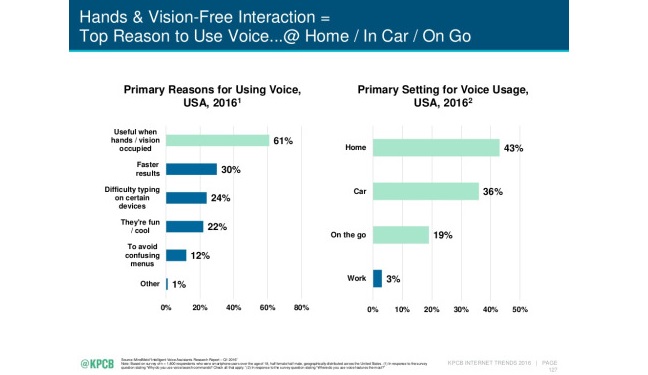
Many people now using voice search only started doing so in the last six months, suggesting an exponential uptake. That figure is sure to grow.
We’ve already discussed at length how voice search can be utilized for local businesses. Today, we’re going to look at how we can codify voice search SEO strategies and SEO for local businesses.
We’re going to investigate how you can Integrate local information across platforms, including your native applications, to solve customers’ needs when looking for your brand. We’re also going to look at how you can include conversational language outside of traditional SEO.
So roll up your sleeves! We’re going in.
Individuals interact differently with voice search than a typical search box.
Search queries are more conversational, so users mostly use natural language instead of keywords. This makes them longer, but not always clearer.
A user might have typed in:

but would tell a voice assistant:

This takes a leap of extrapolation to provide the right solution.
With technology evolving, marketers need to pay close attention and consider building voice-based strategies into their wider marketing.
Amazon has already enabled voice ordering of products.
Capital One bank has made it possible to do online banking and pay off credit cards with voice commands.
HSBC bank has made Voice ID capable of accessing your banking apps.
Not just that, the best thing is you can even voice-order Domino’s Pizza today with Amazon Echo. What a time to be alive!
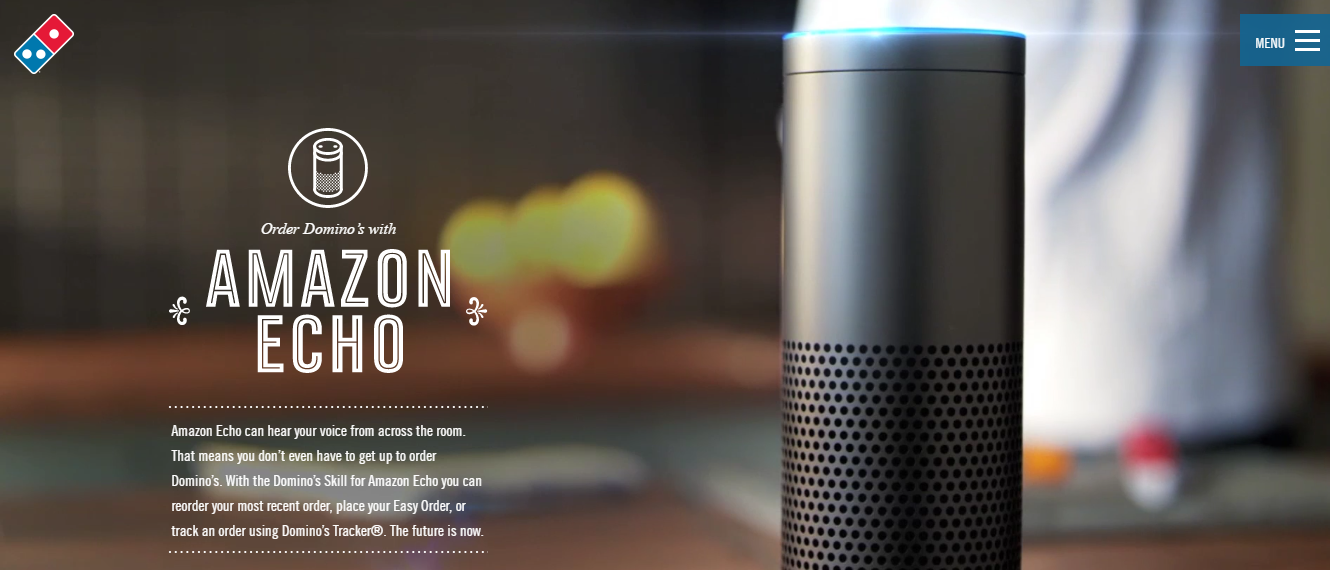
The Amazon Echo can also order you a “Large Deep Dish Pepperoni Pizza with Mushrooms and Extra Sauce” and have it delivered to your house via the Domino’s Pizza Anyware initiative.
While these methods require some serious clout when it comes to research and development, product engineering and more, there are simple and easy ways for local businesses to take advantage of voice search too.
I’m going to list the 5 voice search considerations for small local businesses to take advantage of.
In order to take advantage of voice search, you’ll need several components to help you:
In order to be prepared to maximize on the opportunity of voice search, you need to develop a robust voice content experience, optimize your recommendations, and make the most of the potential opportunity with long tail, informal keywords.
For local searches specifically, you’ll want to optimize for keywords like “near me” and “nearby”.
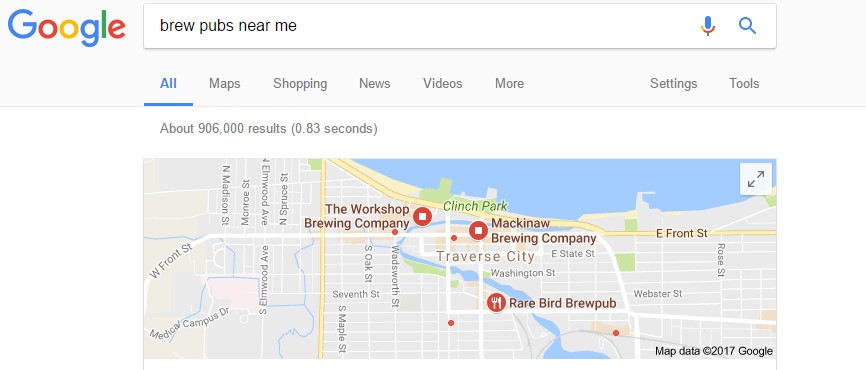
While making sure your listings information (Name, Address, Phone Number) is correct and readily available.
Listing your business on Google even allows you to list your daily opening hours, which will help you net enquiries like “open now”.
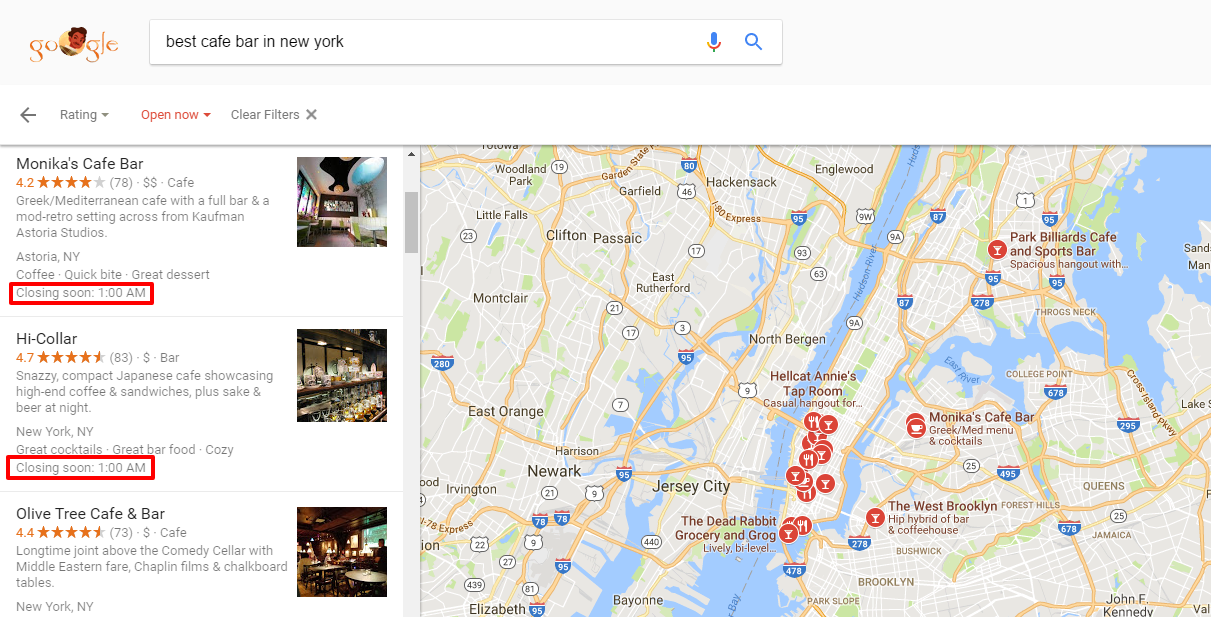
You’ll also want to identify local content marketing opportunities, making use of local stores, advocates, and influencers. Get them talking online about the experiences you’re creating for your brand or local business – they’ll be guaranteed to use informal language that will enmesh itself into the fabric of voice search much more easily, and increase your chances of coming up as a voice search result.
Broadcast your local identity far and wide. This might sound like a contradiction, but you have to remember that people from every neighboring locality will visit your space at some point, and you want to be ready when they do. Make sure your brand is everywhere.
For every nearby location, create a unique landing page optimized for that location. That way, you will be able to advertise to people who are not close by, but are near enough to take advantage of your services. Even if users turn off tracking software, Google knows where they are and will tailor “near me” search results to the last known location.
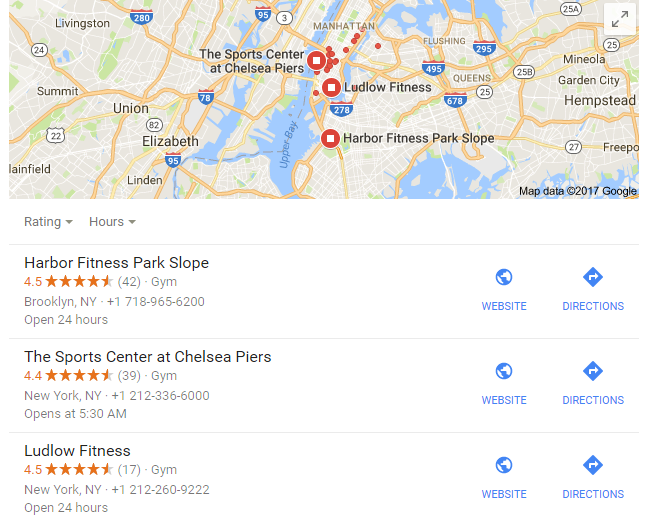
Include reviews to boost search rankings. Yelp, TripAdvisor and many others offer plugins that allow you to feature reviews on your pages. Do so and you’ll see these landing pages are far more likely to rank.
Integrate conversational language into web content. Before now, getting the right saturation of keywords for written searches was the ultimate goal of online content creation. Now, you want to start tailoring how you speak to the way your customers will speak, and this will differ in different parts of the country.
Using regional dialect, slang and abbreviations will all help you stand out from the competition on voice search queries. Writing ‘in voice’ has numerous advantages beyond voice search too, so should form part of all
SEO best practices.
There’s a great moment in The Wolf Of Wall Street that perfectly demonstrates this principle.
The first excerpt is the cleanest demonstration of moments of need. When someone needs something, you want to be there to sell it to them.
A local business is a little more complex than a pen, so follow me in a thought experiment:
If you’ve done some SEO before, you’re probably looking at restaurants near me as the search term. Wrong.
You want to optimize for “Where can I find–” as well.
That way, you more perfectly match the enquiry. You’ll be ranked higher and more likely to be picked up. You’re not done yet, however.
You need a Google Knowledge Card.
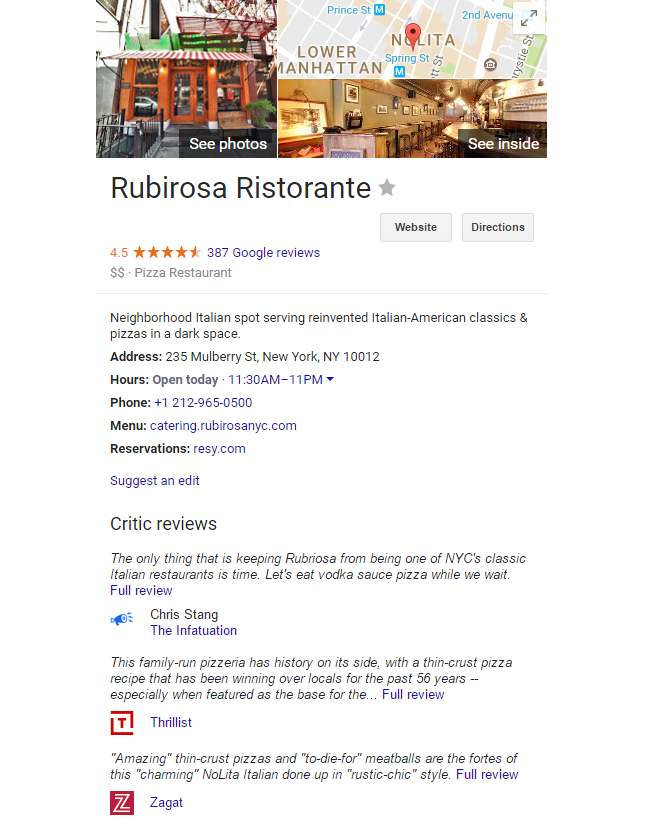
Someone needed a restaurant right then and there, and you were able to fill that need right then and there.
This includes all the information on your restaurant, including reviews, opening times, a button to call to make a reservation, as well as a link to a mobile-optimized, local landing page.
Google Trends reported that “Near me” or “Nearby” terms have increased in use since 2014.
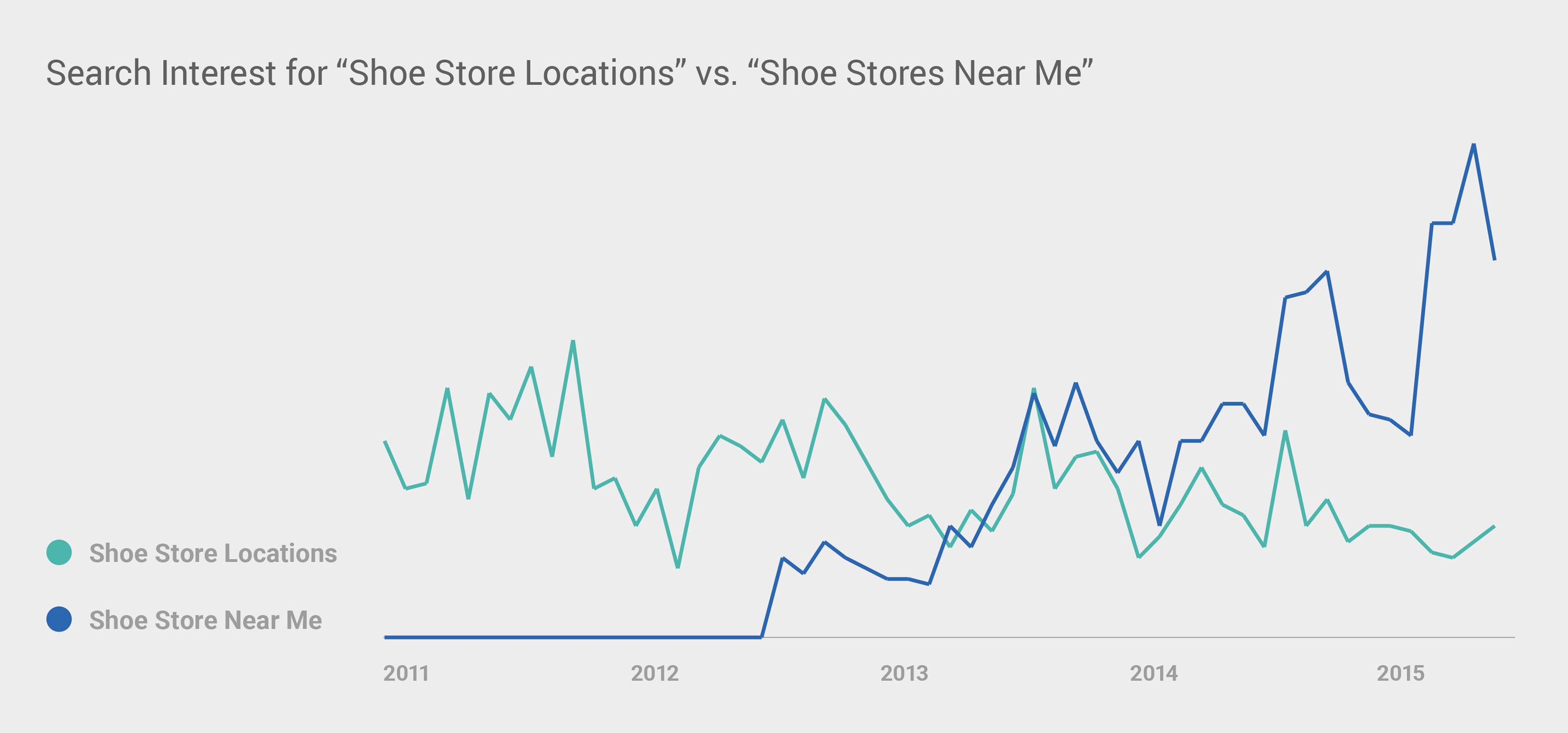
That trend is likely to continue, and it already represents a substantial market.
To make the most of that market, you need to list as many Google My Business locations in your market as you can. This will give you a greater chance of ranking for “Near me” or “Nearby” terms, as you will be listed as ‘near’ a greater number of locations from which searches can emanate.
There are two fundamental aspects of local SEO that you need to live by:
For organic search results, you’ll want to add information that helps Google find and process your location. That means ensuring you have your NAPs and structured data on both your About and Contact pages. You should also make regular references to the neighborhoods you serve throughout your website.
For help with this, you can use SEOPressor to optimize your local business listings. It will help you list both keywords and semantically related long tails, as well as ensuring you have the right ratio and density.
As with all SEO for local business, the more you know, the better you can respond. This is a science as much as it is an art, and the only way to optimize is to have data to base your decisions on.
Google Search Console can help you identify what people are searching for.
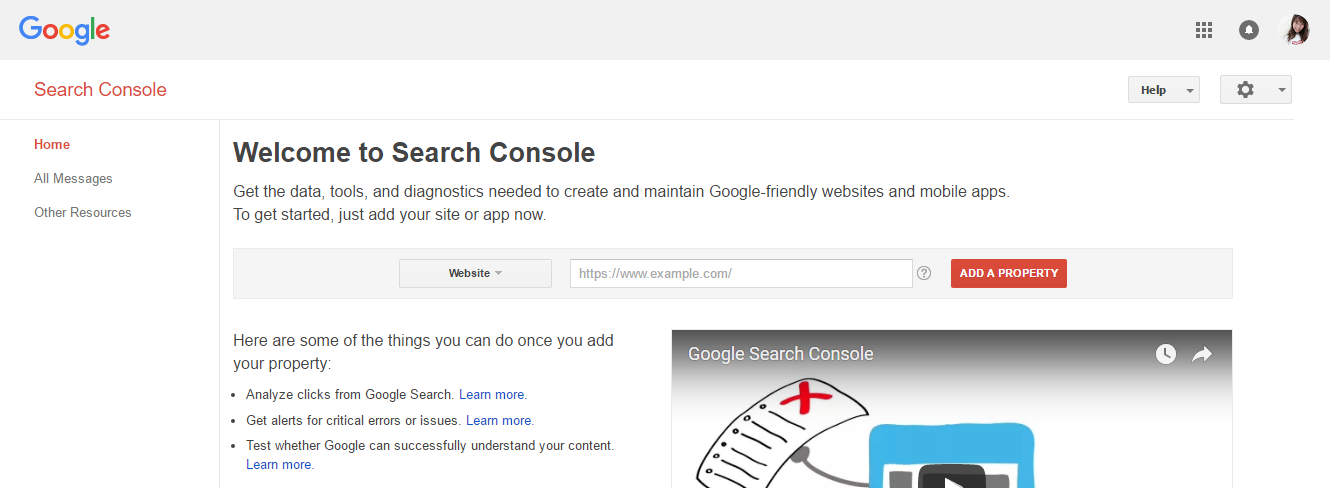
Google Search Console can also make suggestions for adding conversational language or different content that will help increase your uptake.
Compare your desktop and mobile queries.

Make sure you separate desktop and mobile in your analytics to ensure you are optimizing for both in the relevant ways.
Google Chrome has enabled voice search on desktop, which is different from the mobile experience. Similarly, Windows Cortana is for use primarily on desktop devices.
Integrate Your Web Analytics. Search metrics are one thing, but your web metrics are just as important. How are people finding your website, and where are they landing on your landing pages? This helps you understand where your customers are and where else you can optimize, as well as what platforms may need more work, and what opportunities you are missing by not having the right pages on your site.
Finally, Analyze How Your Brand is Represented. Check the various networks, from Google and Facebook to Yelp, FourSquare, TripAdvisor and more. Make sure the message is consistent and your listings are accurate. This will ‘amplify’ your accuracy and make you more likely to be picked up.
Now I’ve told you how to do it, I’m going to remind you how important it is. There are a lot of steps up there, and it might feel easier to say ‘why bother?’
Well, here’s why:
Local businesses need to build a robust voice strategy into their marketing plans. Kayak is already integrated with the Amazon Echo, and users can find flight information, search for hotels and get price quotes for the travel industry through voice queries. They are the only ones doing this, and this means their site is the one Echo uses to answer those questions.
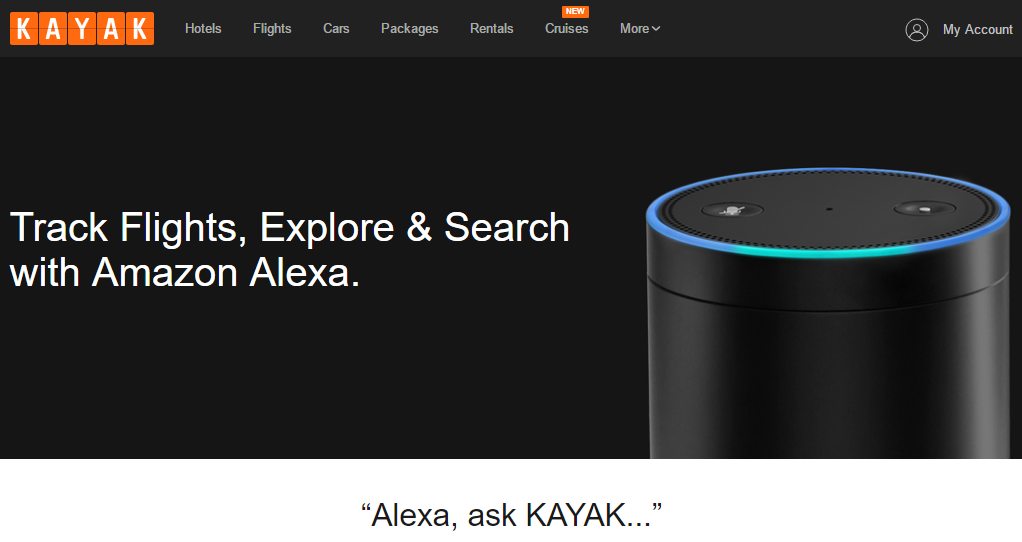
Customers will, therefore, be exponentially more likely to book through Kayak.
A local bed and breakfast will see far greater returns by making sure its information on Kayak is comprehensive, accurate and optimized. This will save that BnB time and effort creating a whole Amazon Skill of its own, which simply wouldn’t be discovered by Echo users. There are right ways and there are easy ways, and sometimes those are the same way. Don’t be intimidated. Get out there, identify your opportunities, and make the most of them.
What do you think of these 5 local SEO strategies? Do they help with your business? Leave a comment down below if you have more tips to share with us!
Updated: 25 April 2024
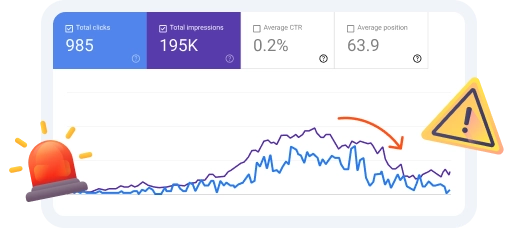
Gotcha.

Generate 5,000 words in under 5 minutes

Publish 100+ blog posts monthly

Rank in the Top 10 with SEO-optimized content

Drive 500K organic traffic
Rank in the Top 10 now with Longform AI
Save 67% today (As low as $14.69/mo)
